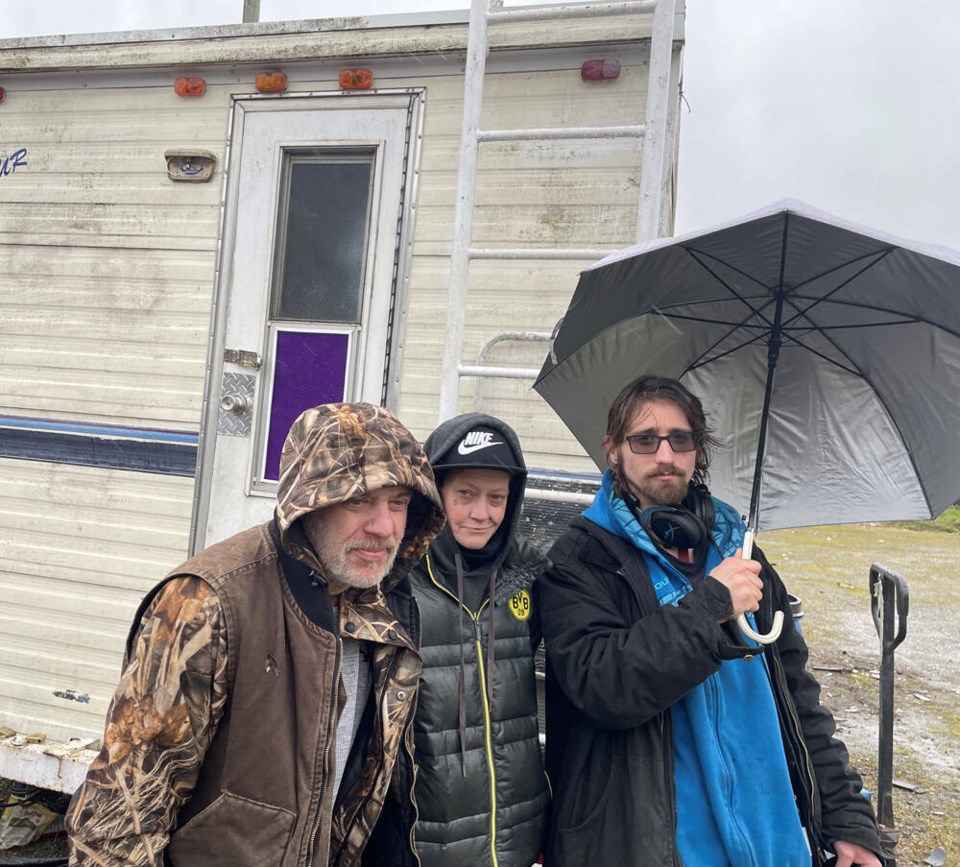Coun. Carol Day said it sounded like a “witch hunt” while Coun. Kash Heed cautioned against “NIMBYism.”
This was in reaction to a motion by Coun. Alexa Loo to have city staff look into what’s going on at the Alderbridge temporary modular housing (TMH) building, a 40-unit low-barrier home in City Centre.
Day told the community safety committee Monday that the request for information seemed like it was targeting the residents of the Alderbridge TMH, rather than looking broadly at this type of housing.
“This just feels very heavy-handed,” Day said.
In the end, the majority of the committee voted to have city staff look at how well the TMH is being operated, how effective its programs are as well as “statistics on the success of the recovery/housing journey” of its residents. City staff will also look at overdose deaths inside homes versus on the street or in the TMH.
A nearby hotel recently complained to city council their security costs have increased by 300 per cent.
Heed, however, noted there’s a “global mental health crisis,” and every major city has the same issues in their downtown areas.
“Remember, we don’t just represent people who own hotels or own expensive housing and businesses, we also represent those people that are at the lower rung of the socio-economic ladder,” Heed said.
He further clarified he opposed “singling out” this TMH, run by RainCity Housing.
Affordable housing scarce in Richmond
The Alderbridge TMH opened four years ago despite a public outcry from residents in the vicinity of the city-owned land where it was to be situated.
Temporary modular buildings are low-barrier and they are meant for people who are homeless or at risk of homelessness.
Just last fall, a second TMH near Costco, called Aster Place, opened for another 40 residents. This is run by Community Builders.
Most people will agree there’s a lack of affordable housing in Richmond, to say nothing of subsidized housing for low-income residents.
Richmondites have told the News about seven-plus-year waiting lists to get into BC Housing’s subsidized units in the city.
For those wanting help with substance use disorders, there is no detox facility in Richmond and only two recovery homes, run by Turning Point Society.
For one group of homeless Richmondites, their 10-year camp near the Oak Street Bridge was recently dismantled.
The group, including husband and wife Dave and Randi, were living under a bridge on River Road in tents and motor homes for the better part of a decade.
But some time after the News ran a story about the fact they don’t have an indoor home, the group was told to leave the River Road lot.
They had a three-day warning, but even before the final move-out date, the lot was being cleared, they told the News.
Their homes were dismantled, and they were told to move elsewhere.
Many of their belongings were thrown into the trash.
This included any heat or light source they had, explained Dave.
Some of the people living at the camp claim their possessions were taken by the cleanup crew, a contracted company.
But city spokesperson Clay Adams told the News there were concerns about public safety and fire hazards at the encampment. Furthermore, getting rid of people's belongings isn't done "willy nilly."
Adams said it wasn’t a “sudden sweep,” rather the city bylaws, the Ministry of Social Development and Poverty Reduction and Richmond Fire-Rescue had been working with the group for “some time.”
"We are cautious about simply moving people on unless it's an issue of safety," Adams said.
The group salvaged what they could and found another lot in west Richmond to settle into.
But just a week later, they were told they had to pack up their things and move again.
The News met with the campers on a windy and rainy day just before they moved, and was told they were unsure where they’d find shelter.
The lot they had moved to was under the jurisdiction of TransLink and the city told the News that it was this agency that moved them along.
All they received was a piece of paper with a list of shelters, explained Kyle Shipman, a friend who doesn’t live in the camp.
Danny, who is living in a motor home and was also located at the River Road camp, said he didn’t know where they would go to next.
“They haven’t offered any solution – they just make it harder and harder,” said Danny.
There was also a feeling among the group that their possessions aren’t valued. They work hard to get things to survive including tools, explained Danny.
To get money to survive they will pick up discarded items such as bottles – essentially, recycling items that others have thrown away.
“People look at us like we’re scum for doing that” Danny said. “That’s how we feed ourselves.”



